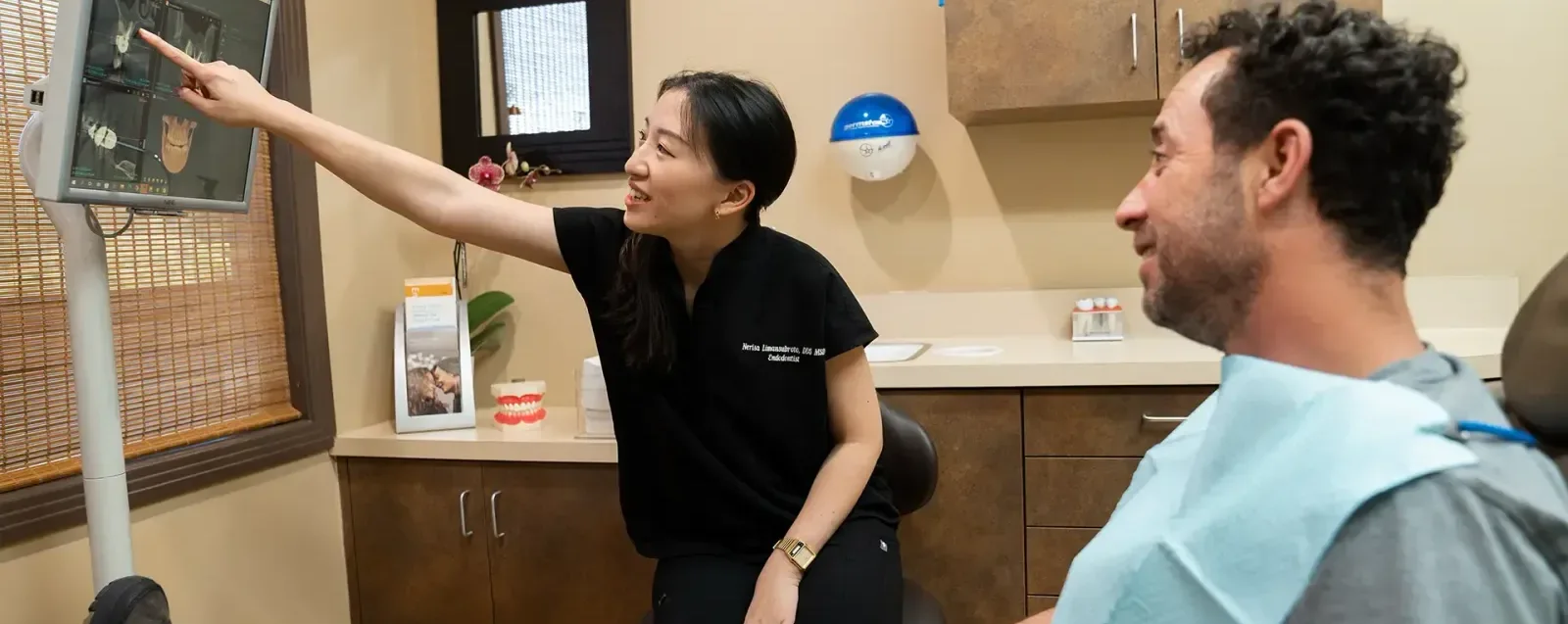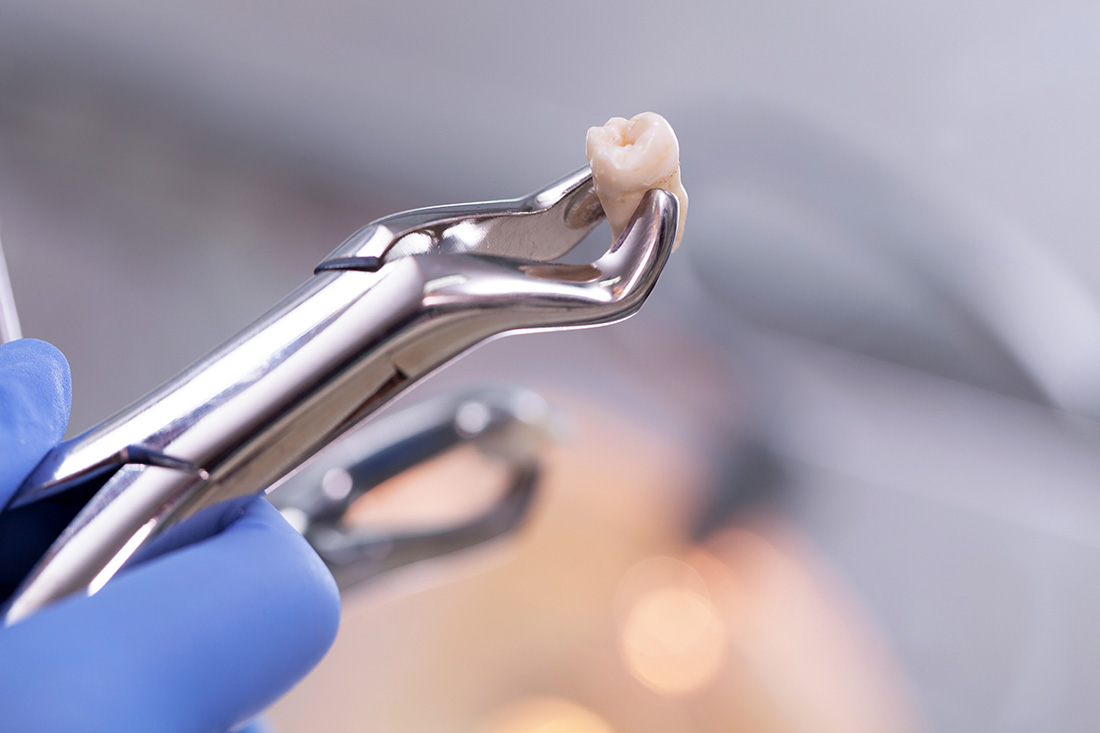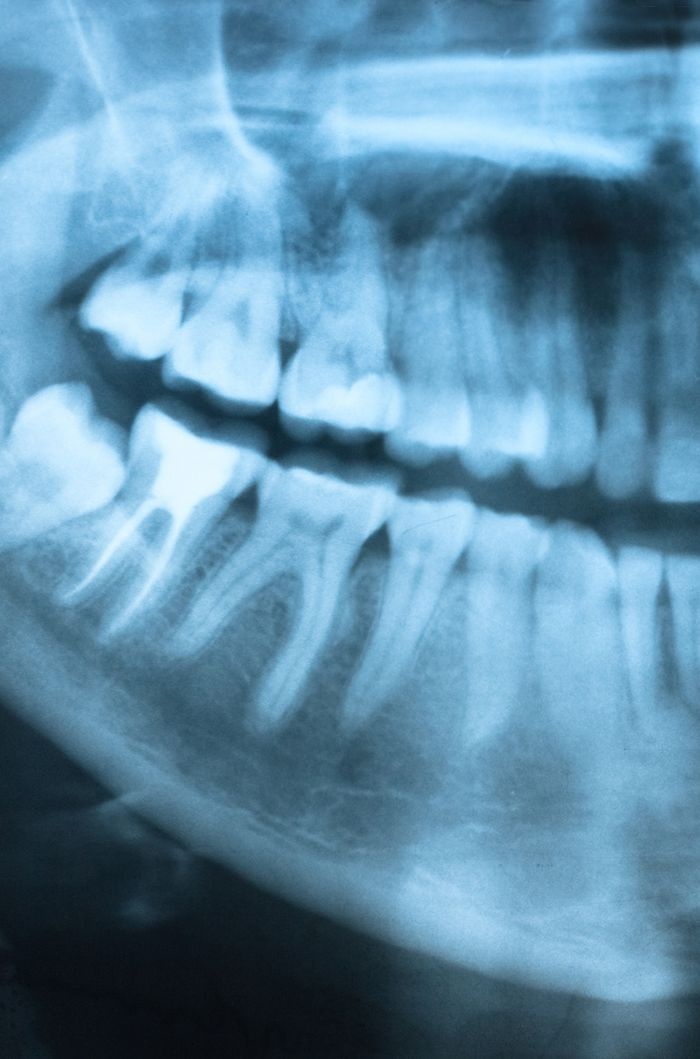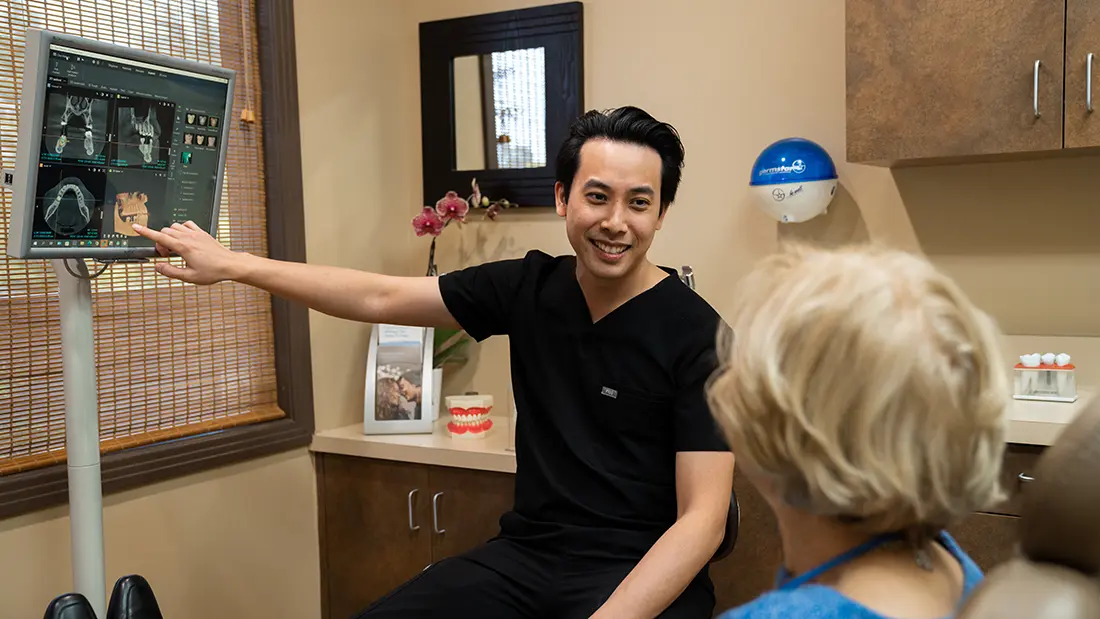Frequently Asked Questions
Tooth extractions may be necessary for patients suffering from an extremely severe cavity, severe damage from oral trauma, or an infected tooth that cannot be saved with root canal therapy. In most cases, it is possible to save your tooth with a crown or root canal therapy, but sometimes an extraction may be your only option.
A tooth extraction may be required if severe periodontal disease is compromising the health of the tooth, causing it to loosen from the gums. Your dentist may want to extract these teeth to prepare you for a strong and long-lasting tooth replacement option, such as dental implants or dentures.
Thanks to numbing and sedation treatments, you won’t feel any pain or discomfort during or immediately after your extraction procedure. However, symptoms such as pain, discomfort, swelling, bruising, and bleeding may begin to arise within a few hours following your extraction. While these symptoms tend to peak within the first 2-3 days, they will begin to fade as you continue to heal. Make sure to eat a diet of mostly soft foods for about 5-7 days after your treatment to prevent impact and agitation.
It will take about 1-2 weeks to completely heal from the extraction. By carefully following the recovery instructions provided to you by your dentist, you can enhance the healing progress. It is not normal to endure severe pain and discomfort 1-2 weeks after your extraction, so contact your dentist for a follow-up appointment if you are experiencing these symptoms.
Extractions that are required to remove damaged or decayed teeth will usually have some degree of insurance coverage. After a detailed evaluation, we will work with you and your insurance company to provide you with a cost estimate for treatment and help you to make the most of your insurance benefits.
In many cases, we will recommend a bone graft after an extraction. By performing a ridge preservation graft, we can fill the space left by the extracted tooth to maintain the integrity of your jawbone. Not only does this help preserve your bone, it can also provide a solid foundation for a dental implant in the future.







